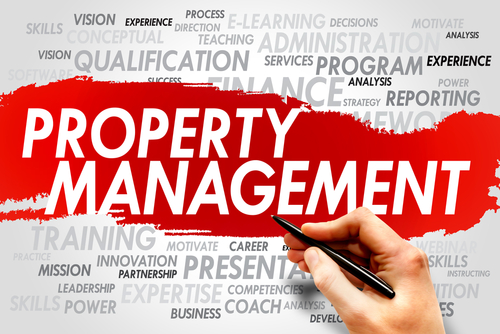
When it comes to job security, seeking out a growing and in-demand industry is a must. For ambitious and detail-oriented individuals, a career in the property management industry may be just what you are looking for. Whether you choose to become a property manager or start your own property management firm, a career in real estate is both exciting and rewarding. That said, every decision requires careful consideration, and property management is no different. So join us below as we help you discover how to get started in the property management industry.
What to Consider When Starting in the Property Management Industry?
No matter what is going on in the economy or the world, people will always need a place to call home. Therefore, the real estate and property management industry is a booming one. Even during the COVID pandemic, the demand for homes and rental units remained strong. Thus, providing new opportunities for investors and individuals looking to make a career change. However, before jumping into the property management industry, check out the following considerations below –
 Start Small and Be Specific
Start Small and Be Specific
The first rule of real estate is – location, location, location! In the property management industry, the concept is the same. So, whether you decide to invest in rental property to generate passive income, train to become a property manager, or start your own company – begin where you are comfortable. Going big too fast without the proper foundation of knowledge or infrastructure is one of the main reasons ventures fail. The property management industry is about finding your niche in a growing area where there is room to expand your business as you gain experience.
Laws and Regulations
Whether you choose to invest in or manage commercial rentals, single-family homes, retail space, or vacation rentals, there will inevitably be laws and regulations that govern your business. As a professional in the property management industry, it is your responsibility to know all of the laws applicable to your business. Keep in mind that laws impact rental property at the federal, state, and local levels. For example, these laws could dictate landlord actions regarding security deposits, environmental compliance, applicant screening, and notice requirements. In addition, laws may vary based on the type of property involved, such as commercial, residential, or short-term rentals.
Streamline Your Processes
Owning and managing rentals can require a significant time commitment if you are not organized and efficient. Therefore, as you build your career, creating, implementing, evaluating, and adjusting processes are essential to growth. As a property manager, any way to streamline your marketing, leasing, screening, rent collection, or maintenance policies will improve your business in the long run. So, take the time to think through these processes and be ready to adapt them as needed.
Make Technology Your Friend
In any business, especially in the property management industry, technology can be your best friend. Therefore, choosing the right property management software based on your needs is critical. However, with so many options available, take time to narrow down what you need by answering these questions below –
- How much of my budget can I allocate to technology services?
- What features are most important for my needs?
- How much time am I willing to commit to completing tasks?
- Does the software I am considering have room to expand services as my business grows?
While these are not the only considerations, it is an important start to help narrow down the options. Today, many tenants expect certain conveniences such as online rent collection and even submitting digital maintenance requests. However, there are benefits for both landlords and tenants that make purchasing the right software a worthwhile decision for your business.
Connect with The Right People
Starting in a new business venture involves getting the word out. In the property management industry, investors, realtors, brokers, property managers, and leasing agents often network among themselves. So, connecting with fellow industry professionals can help grow your business and provide valuable insight into the local market.
That said, connecting with the right people goes beyond other industry professionals. It also involves hiring the right employees that can bring added experience and insight to your rental business. Additionally, a solid and thorough screening process helps to protect against problem tenants. Moreover, if you own a rental property, maintenance is inevitable. Therefore, fostering connections with local vendors and qualified maintenance technicians is essential. So, in the property management industry, as with other businesses, every relationship matters and impacts your overall success.
Becoming a Successful Rental Property Manager
If starting your own property management company is a big leap with your current experience, working for an established firm is a great way to begin. As more and more people choose to rent over buying due to financial constraints, diminished inventory, or preferred lifestyle, the demand for qualified property managers is growing. Check out the basic steps you need to get involved in this rewarding career below.
What are the Legal Requirements for Becoming a Property Manager?
To become a property manager, each state or jurisdiction will have its own licensing requirements. So, it is vital to research the regulations in your area before getting started. For example, since property management goes hand in hand with the real estate industry, some states require managers to obtain a real estate license. In addition, managers who oversee government-subsidized housing may need to obtain other specific certifications. Some of the requirements for those in the property management industry may include –
- Real Estate Broker’s License – Becoming a real estate broker requires taking courses and passing exams on several property-related topics. In addition, courses cover subjects such as contracts, taxes, and insurance.
- Property Manager’s License – Obtaining a property management license also requires a series of coursework and a passing score on all exams.
Some states do not have stringent licensing requirements. That said, the courses needed to obtain them offer individuals a wealth of useful information in the day-to-day operation of a rental business. Therefore, consider taking courses or obtaining a license even if it is not a legal requirement.
 Knowledge is Power
Knowledge is Power
In the property management industry, the more you know, the better. Laws, regulations, and guidelines can change, and as a professional, it is your job to advise clients and tenants alike. In many cases, a high school diploma is all that is needed to get started in the property management industry. That said, those pursuing or with a college degree in business, administration, accounting, or real estate will already have an advantage. However, regardless of your beginning level of experience, an entry-level position at a reputable company will help individuals gain valuable and real-world expertise.
As individuals work their way up through an existing company, it is possible to obtain additional certifications. These certifications display a level of professional commitment as well as professionalism in the property management industry. Each of these rental certifications has their own requirements and include –
- Certified Manager of Community Associations
- Residential Management Professional or RMP®
- Certified Property Manager
- CAM or Certified Apartment Manager
Top Skills Needed in the Property Management Industry
Working in any capacity throughout the dynamic property management industry requires a specific set of skills and a high level of professionalism. So, to be successful, let’s review some essential skills every property manager should possess below.
- Top-Notch Customer Service – Working in the property management industry requires a high level of professional customer service. As a landlord or property manager, you can encounter maintenance vendors, tenants, owners, and a host of other individuals throughout the day. These communications can come in the form of phone calls, letters, texts, or emails – all requiring excellent verbal or written communication skills and an understanding of best customer services practices.
- Time Management – In any business, time management is critical. However, in the property management industry, circumstances can change in an instant. For example, emergency maintenance calls, unexpected move-in delays, paperwork processing, or disgruntled tenants can all derail your day. So, property managers must be able to multi-task and efficiently manage time to complete all tasks.
- An Eye for Detail – Whether a property manager completes paperwork, touring a home, or completes an inspection, an eye for detail is critical. In the property management industry, individuals deal with many legally binding contracts. In addition, following strict Fair Housing Laws is essential. Therefore, careful attention to detail is a must for all property managers.
Looking for a Top-Notch Property Management Company?
When it comes to top-notch customer service from experienced staff, Bay Property Management Group is a leader in the property management industry throughout Central Maryland, Washington DC, Southern Pennsylvania, and Northern Virginia. Our goal is to balance tenant needs with owner investment objectives to achieve a positive experience for all. If you are interested in learning more about our full-service approach and what sets us apart as a leader in the local market, give us a call today.

 Start Small and Be Specific
Start Small and Be Specific Knowledge is Power
Knowledge is Power